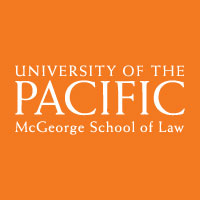Description:
Teaching Fellow, Stanford Program in International Legal Studies (SPILS)Two-year fixed term position
Note: This position has been deemed critical/has specific funding, has been approved by the Law School for posting, and is exempt from the hiring freeze.
The Stanford Program in International Legal Studies (SPILS), leading to the Master of Science of Law (JSM) degree, is offered to foreign students who have completed an undergraduate or graduate degree in law. Prof. Diego Zambrano is the SPILS faculty director. The program provides interdisciplinary training in socio-legal studies and empirical research methods, broadly construed. SPILS fellows complete master's theses based on analyses of socio-legal problems of interest to them, often (though not always) concerning their home countries. SPILS is the Stanford graduate program of choice for foreign students interested in careers in teaching, research, the judiciary, public policy, or service in government or non-governmental organizations. SPILS enrolls approximately 8 fellows per year. Many of the students who go on to pursue a JSD at Stanford have completed the SPILS program.
The Teaching Fellow for the SPILS program serves as the primary advisor for SPILS fellows, assists in teaching an empirical research methods seminar, and works closely with fellows and their faculty advisors from the design of the fellows' thesis research through the submission of the written thesis. The SPILS Teaching Fellow is also responsible for the day-to-day administrative management of the SPILS program, coordinates SPILS academic and social activities, and participates with SPILS faculty and the Associate Dean of Admissions and Financial Aid in the SPILS admissions process. The SPILS teaching fellow reports to Prof. Zambrano and works closely with the Associate Dean of Graduate Studies. Although this is a full time position, the fellow should have a reasonable amount of time to conduct their own research and will have ready access to Stanford resources and faculty for that purpose.
This position is intended primarily for people who expect to pursue an academic career in law or socio-legal studies. Candidates for the position should have a JD (or the equivalent for foreign scholars), and should have completed (or nearly completed) a doctoral degree in law or social science that included substantial coursework in socio-legal studies and experience applying empirical research methods broadly construed (i.e., whether in the form of quantitative or qualitative social science, or a more historical orientation). Applicants are sought for a two-year commitment, starting in August 2026, with the possibility of a third-year by mutual agreement.
Those interested are encouraged to submit applications as early as November 25, 2025 (wave 1). Due to updates to the Stanford Careers website, we will be unable to accept new applications between November 26, 2025-January 4, 2026. You will have the opportunity to submit applications from January 5-January 18, 2026 (wave 2). Submit a letter addressed to Prof. Zambrano, and CV via the application portal found here: https://careersearch.stanford.edu/ referencing job number [107496]. Your letter should summarize your educational qualifications and experience, as well as any other information that might help in making selections. Each applicant must also send the following items to Susana Lee, slee@law.stanford.edu:
- official transcripts from all graduate degrees,
- a resume,
- copies of relevant publications,
Separately, you will need to have sent on your behalf three letters of recommendation (at least two from law professors) commenting on your suitability for the position in terms of teaching ability, capacity for excellence in research, and interpersonal and management skills. Your recommenders must submit these directly to Susana Lee, slee@law.stanford.edu.
The expected pay range for this position is $85,000 on an annual basis in the first year and is a benefits-eligible position. Stanford University has provided the salary for this position, representing its good-faith estimate of what the university reasonably expects to pay for the position. The pay offered to the selected candidate will be determined based on factors including (but not limited to) the qualifications of the selected candidate, budget availability, and internal equity.
Applications will be considered on a rolling basis until the position is filled.





